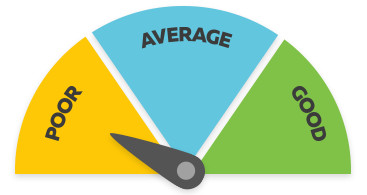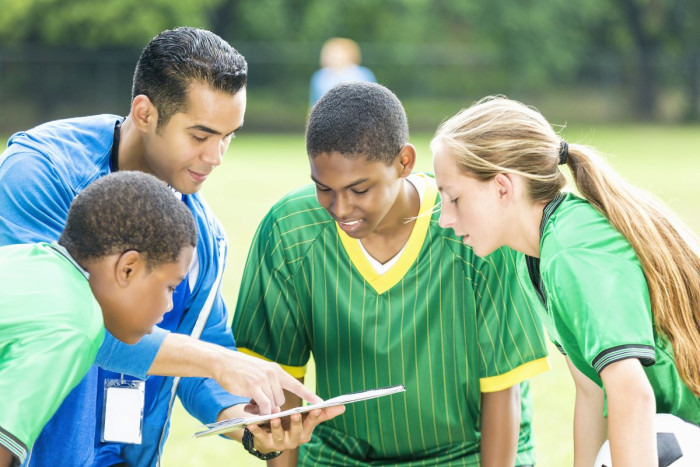Sports Coach/Official
Pouako/Kātipa Hākinakina
Alternative titles for this job
Sports coaches/officials coach and instruct athletes, and are the officials in charge of sporting events.
Pay
Coaches can earn
$49K-$80K per year
Source: Seek, 2023
Job opportunities
Pay
Pay for professional sports coaches varies depending on the sport and the level at which they coach.
Many sports coaches/officials work part time and most sports coaches/officials need a second job to make a living.
- Sports coaches working on a casual, part-time basis or those in entry level roles may start on minimum wage.
- The average salary for sports coaches who work full time is $60,000 to $80,000 a year.
Source: careers.govt.nz research, 2023; and Seek, 2023.
- PAYE.net.nz website - use this calculator to convert pay and salary information
- Employment New Zealand website - information about minimum wage rates
(This information is a guide only. Find out more about the sources of our pay information)
What you will do
Sports coaches/officials may do some or all of the following:
- help athletes learn the skills, rules and tactics of a sport
- organise practice sessions and develop training programmes and drills
- motivate teams or individuals
- identify and encourage talented players
- select players for teams and events
- referee, umpire and keep time for sports competitions or games
- judge and award points in sports competitions
- look after equipment and ensure players use it correctly.
Skills and knowledge
Sports coaches/officials need to have knowledge of:
- the skills, rules and tactics of the sport they coach or act as officials in
- coaching and teaching techniques that support a sportsperson's learning and development
- how different weather conditions could affect an event or a sportsperson's performance
- sport science and first aid.
Working conditions
Sports coaches/officials:
- may work long and irregular hours, including early mornings, evenings and weekends
- work at indoor sports facilities such as sport centres, or outdoors – for example, on rugby fields – in all weather conditions
- may work in stressful conditions
- may travel around New Zealand and overseas to sports events and competitions.
What's the job really like?
Sports coach video
Angie Winstanley-Smith talks about life as a sports coach – 2.27 mins.
I'm specifically a water polo coach, and a little bit of swimming too.
But I spend my days on the poolside,
teaching kids how to throw a ball. A typical day for me and my job is an
early morning, you know,
I wake up at 5 o'clock because we like to get in the pool early. Other times,
you know,
I'm back in the office preparing my session plans and developing any kind of
tour opportunities we might have. So that will be, you know,
potentially going overseas to play. And, and you know,
my role as the coach is also running the budgets for that organising
accommodation. So what I'm doing here is a big part of my job.
So I'm just analysing our performance.
You can work out where things didn't go to plan or things that you've gotta
improve so I can adapt my training to be able to drill those things to make us
better. I got into water polo at the age of 13 and it was just a little bit more
interactive than the swimming.
All of my experiences as an athlete has definitely led me down the path of being
a coach.
And if I can give 1 person or 2 people some of the opportunities I've had as
a person, then, you know, my job has been well done.
During a training session, I probably do about 5,000 steps. I'm constantly walking around.
Coaching involves a lot of things,
so from planning and preparing a training session to actually delivering it and
managing a lot of people at the same time. Look,
I think there's 2 really key skills. The first 1 is communication. I mean,
especially in this environment, you can see that there's a lot going on.
So I need to be able to communicate with a group. But then the other side of
that is being able to plan a good training and being able to walk on the pool
side ready,
prepared so I can execute a really engaging training. The qualifications to
become a coach are a little bit different from sport to sport.
I haven't needed to have any qualifications specifically to coach water polo.
I do wish, if I could go back to 18-year-old Angie,
that I had studied sports coaching at university,
it would've been really handy to be able to study that. You really
integrate into a young person's life, being their coach. You know,
you've got a bond because you are helping them on their pathway to potentially,
you know, being an Olympian. And it's a pretty important job, I think,
and I think it's a pretty rewarding job at the same time.
When I'm on the pool side, it doesn't feel like work. It's,
it's 100 % enjoyment for me.
Entry requirements
Entry requirements for sports coaches/officials vary, as each national sporting body has its own requirements. Usually sports coaches need:
- previous experience and success as a sportsperson
- previous work as a sports coach, which could be on a volunteer basis
- a good working knowledge of the sport they wish to work in so they can pass theory exams and practical tests.
- Sport New Zealand website - find out more about becoming a coach
- Te Mahi Ako website - information on sport education programmes
Sports coaches who work with children may need to pass a police background check and/or hold a first aid certificate.
The Vulnerable Children Act 2014 means that if you have certain serious convictions, you can’t be employed in a role where you are responsible for, or work alone with, children.
Coaches who want to work with high-performing sportspeople can apply to the High Performance Sport New Zealand for support such as the Coach Accelerator Programme.
Secondary education
There are no specific secondary educational requirements for sports coaches/officials, though NCEA Level 1 is recommended. Useful subjects include physical education, home economics, maths and English.
Additional requirements for specialist roles:
Training for snowsports instructors
Training through the New Zealand Snowsports Instructors Alliance is required for people who instruct in:
- skiing
- snowboarding
- telemark or free heel skiing
- adaptive skiing for people with physical disabilities.
Snowsport instructors can also do further study to become trainers, examiners and coaches.
Personal requirements
Sports coaches/officials need to be:
- fair
- able to make decisions quickly
- able to motivate, lead and inspire athletes and teams
- good at planning, management and organisation
- patient, tactful, observant and analytical
- excellent at communicating.
Useful experience
Useful experience for sports coaches/officials includes:
- participating in sport at a competitive level
- working as an assistant or volunteer coach or official
- teaching
- working in sports administration.
Physical requirements
Sports coaches/officials need to have excellent fitness and health.
Find out more about training
- High Performance Sport New Zealand
- 0800 GOLDMEDAL- info@hpsnz.org.nz - www.hpsnz.org.nz
- New Zealand Snowsports Instructors Alliance
- (03) 451 1534 - admin@nzsia.org - www.nzsia.org
- Skills Active
- 0508 4SKILLS - info@skillsactive.org.nz - www.skillsactive.org.nz
- Sport New Zealand
- (04) 472 8058 - info@sportnz.org.nz - www.sportnz.org.nz
- Te Mahi Ako
- 0508 475 455 - info@temahiako.org.nz - www.temahiako.org.nz
What are the chances of getting a job?
Few opportunities for sports coaches/officials
It is difficult to find work as a sports coach/official, as few sports are played year-round in New Zealand. This means most sports coaches/officials need a second job to make a living.
According to the Census, 8,478 sports coaches/officials worked in New Zealand in 2018.
Types of employers varied
Sports coaches/officials can be self-employed or work for:
- sports clubs or facilities such as golf clubs, ski fields or swimming pools
- regional, national or international sports organisations such as Tennis Auckland, New Zealand Rugby Union or the International Cricket Council
- schools or tertiary education providers
- sport organisations such as regional sports trusts or the New Zealand High Performance Unit
- indoor sports venues.
Sources
- Immigration New Zealand, 'Regional Skill Shortage List', 27 May 2019, (www.immigration.govt.nz).
- Marshall, P, industry development adviser for sport, Skills Active Aotearoa, Careers Directorate – Tertiary Education Commission interview, August 2017.
- New Zealand Snowsports Instructors Alliance website, accessed August 2017, (www.nzsia.org.nz).
- Sport New Zealand website, accessed August 2017, (www.sportnz.org.nz).
- Stats NZ, '2018 Census Data', 2019.
(This information is a guide only. Find out more about the sources of our job opportunities information)
Progression and specialisations
Sports coaches/officials usually specialise in a role such as:
- Diving Instructor
- Diving instructors train and instruct recreational or commercial divers in diving techniques, safety, and the correct use of diving equipment.
- Dog or Horse Racing Official
- Dog or horse racing officials co-ordinate and direct dog or horse racing activities, and liaise with other officials to enforce racing regulations.
- Gymnastics Coach
- Gymnastics coaches train and instruct gymnasts by analysing their performances and developing their skills.
- Horse Riding Instructor
- Horse riding instructors teach people how to ride horses. They analyse the performance of horse riders and jockeys, and develop their skills.
- Skydive Instructor
- Skydive Instructors teach people how to parachute.
- Snowsport Instructor
- Snowsport instructors teach people how to ski or snowboard and improve their technique.
- Sports Official
- Sports officials enforce rules during sporting events or judge the performance of those taking part.
- Swimming Coach
- Swimming coaches train and instruct swimmers and help them to develop their speed and technique.
- Tennis Coach
- Tennis coaches work with tennis players to help them develop their skills and technique.
Last updated 25 March 2025


